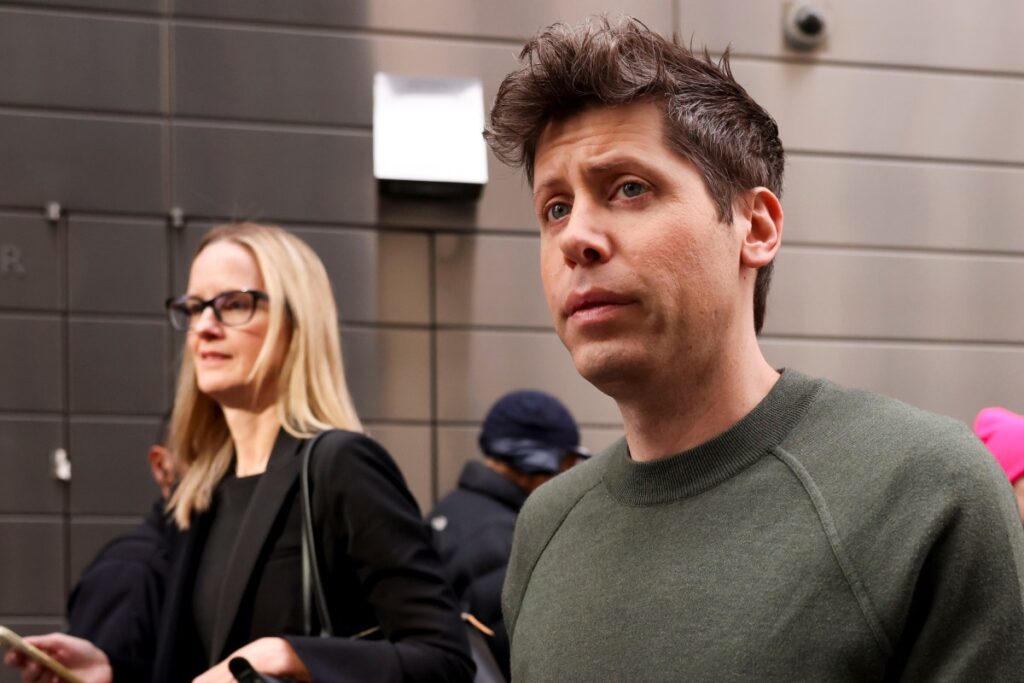Sam Altman once owned some shares in OpenAI through Sequoia
Sam Altman, CEO of OpenAI, sat before Congress in 2023 to testify about the risks of AI. He told US lawmakers at the time He does not own any shares in OpenAIWhich he has said several times, claiming that he only runs the company because he loves it.
However, Altman recently said that he actually had some shares in OpenAI through the Sequoia Fund at one point, a stake he has since sold. in Interview with Barry Weiss Released Thursday, Altman was asked what kind of stake he might own if OpenAI successfully turns into a for-profit company.
Here’s what OpenAI’s CEO had to say:
I have a small portion of shares from the old YC fund – I used to have some through the Sequoia fund but it turns out it’s easier to like sell and not hold the position in it – so I have a very small amount and it’s completely unimportant to me. As far as what I will or won’t do moving forward, I don’t know. There is no current plan or promise for me to get anything.
While Altman’s investment through Y Combinator was known, his investment through Sequoia was not. OpenAI reveals Altman’s indirect investment in his own company through YC On its website. The startup says this “small investment” is the CEO’s “sole interest” in the company and was made before he worked full-time at OpenAI.
Sequoia first invested in OpenAI in 2021, according to Its websitetwo years after Altman took over as full-time CEO of OpenAI. At the time, OpenAI was valued at $14 billion, a massive valuation $157 billion after the startup’s latest funding round earlier this year – The Sequoia Tour also participated.
While Sequoia’s stake in OpenAI as of 2021 is now worth much more, there are several unknowns about Altman’s investment through the venture firm. Investment companies like Sequoia are not required to disclose limited partner investors. It is not clear when Altman sold the stake and for what price.
An OpenAI spokesperson confirmed Altman’s previous exposure in a statement to TechCrunch, but did not provide details about those aspects.
“Sam never had any direct ownership in OpenAI,” Kayla Wood, an OpenAI spokeswoman, said in a statement to TechCrunch: “He had a tiny stake, less than a fraction of a percentage, in a public Sequoia fund with a broad portfolio, which he later learned was Includes minimal exposure to OpenAI.” “Sam no longer has any ongoing commitments to the fund.”
Most CEOs have shares in the companies they run. The largest percentage of a CEO’s pay if he or she runs a public company is equity. Of course, startup founders begin their journey by owning all the shares in their companies, until they give the shares to employees and sell parts of them to investors. But OpenAI was founded as a nonprofit, has a strange structure, and Altman has repeatedly said he has none of it. Just this month, Altman said he did not own any shares in OpenAI during this time New York Times DealBook Summit.
During a May interview with All in PodcastOpenAI’s CEO said that he originally decided not to acquire shares in the company due to its corporate structure. According to her CharterOpenAI’s board of directors must be filled with a majority of independent directors, meaning they cannot acquire shares in the company. Altman says this prompted him not to take any shares until he became one of those independent directors. However, this has led many people to question the motives of the company’s CEO, Altman said, and is likely one reason the company is shifting away from that structure.
Altman’s stake in OpenAI is also becoming increasingly important as a company He is trying to move his for-profit branchwhich is currently controlled by the nonprofit’s board of directors, has been incorporated into an independent company. OpenAI is also said to be considering this Grant the CEO some stock In this shift, although the company and Altman denied there are plans for it.
OpenAI’s for-profit transformation is Currently at risk of being shut down due to Elon Musk’s lawsuit Against the beginning. In essence, Musk’s lawsuit claims that OpenAI is abandoning its original nonprofit mission to make the fruits of its AI research available to everyone. However, OpenAI has recently claimed as much Musk wanted to turn the startup into a profitable enterprise From the beginning.
In one of Altman’s interviews with Vice, he described OpenAI CEO Elon Musk as a “bully” who apparently “likes to get into fights.” At another point, Altman criticized Meta for asking California’s attorney general to block OpenAI’s for-profit transformation.
“I don’t know why Meta sent that message, but I know they know that’s not the way things work. I know that part is in bad faith,” Altman said. “You can imagine a lot of other reasons why Meta sent that message.” . You can imagine they wanted to curry favor with Elon, and you can imagine they felt it would help them compete with us.
While the company says Altman’s exposure to OpenAI through Sequoia was minimal, it’s difficult to reconcile Altman’s comments about not having equity in OpenAI with his recent statements on Weiss’s podcast.



